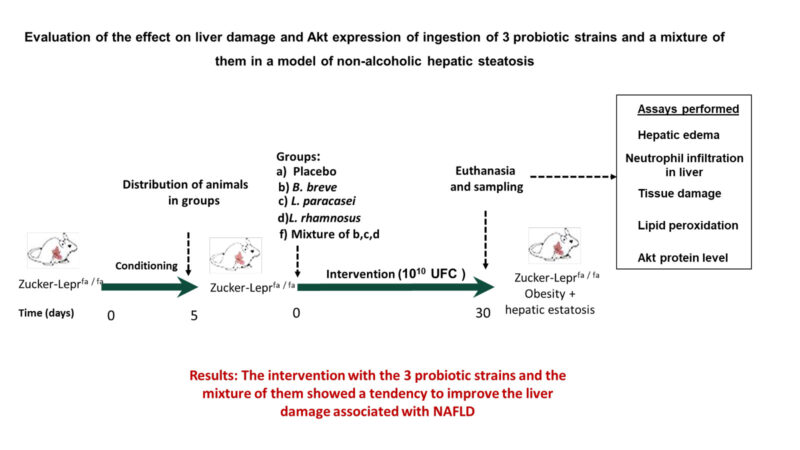
The incidence of non-alcoholic hepatic steatosis (NASH) is increasing. This disease is characterised by the accumulation of triglycerides in the liver and can present complications ranging from non-alcoholic steatohepatitis to hepatocarcinoma. In addition, it is associated with diseases such as type 2 diabetes mellitus and obesity. NAFLD has also been linked to disorders of the gut microbiota. However, research has shown that probiotics can regenerate and regulate human gut microbiota.
The aim of this study was to evaluate the effect of three different probiotic strains – and of a mixture of the three – on several parameters of liver damage and in terms of changes in the expression of Akt, a protein involved in cell survival pathways in an animal model of NAFLD. Neutrophil accumulation was determined by assessing myeloperoxidase enzyme activity, lipid peroxidation and estimation of liver oedema. Changes in Akt protein expression were assessed after probiotic ingestion for 30 days. Probiotic intervention produced improvements in all the markers of liver damage and an increase in Akt expression.
In conclusion, the intervention with the 3 probiotic strains and with a mixture of the three tended to improve NAFLD-associated liver damage.
Keywords: non-alcoholic hepatic steatosis; probiotic; liver damage; Akt.
Directed by: Ana Isabel Álvarez Mercado